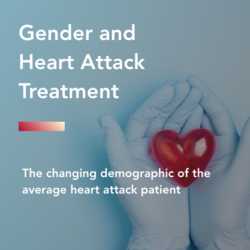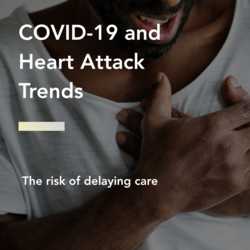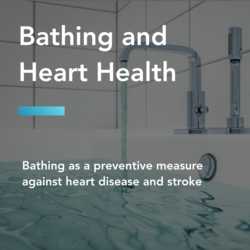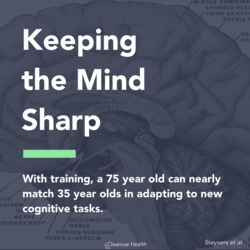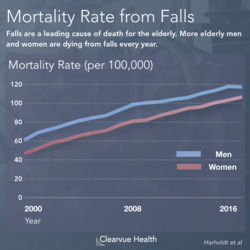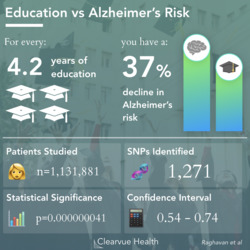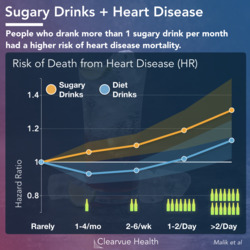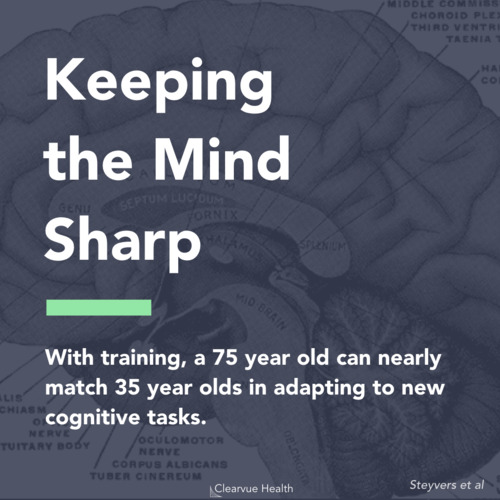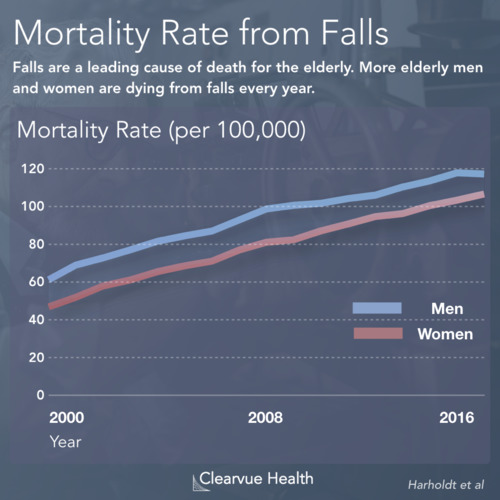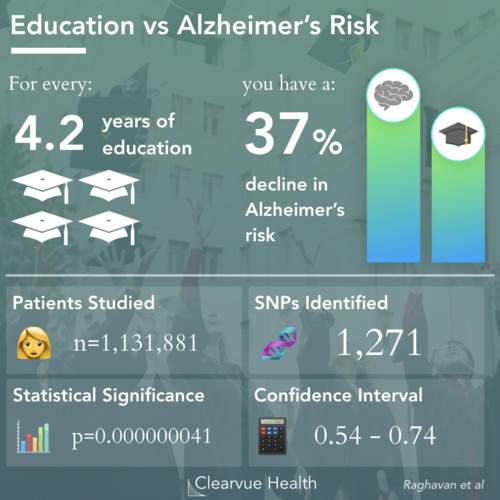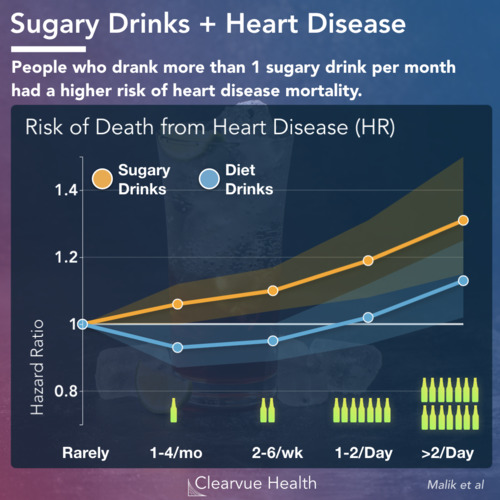Purpose & Longevity Statistics
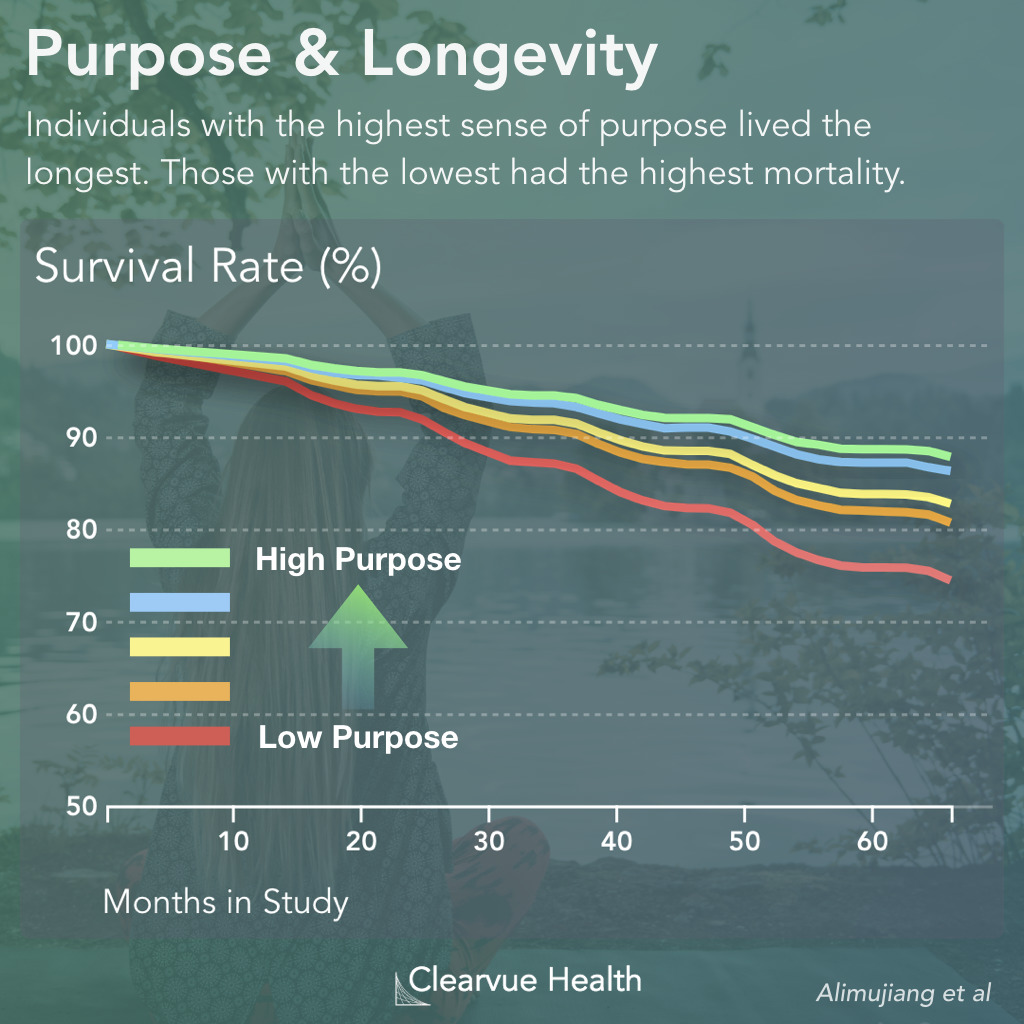
Figure 1: Purpose & Longevity Statistics. Individuals with the highest sense of purpose lived the longest. Those with the lowest sense had the most mortality. Each line represents the percentage of patients surviving at a given month (x-axis) during the study. Each color represents a group of volunteers categorized by purpose. Those with the highest sense of purpose, as represented in green, lived the longest. Those with the lowest sense of purpose, as shown in red, lived the shortest lives.
If you want to live a long life, find something you want to live for! A sense of purpose has been shown to correlate significantly with health. Every bit of increase in purpose leads to a longer life.
Researchers found that purpose correlated significantly with mortality in a cohort of 8,419 adults. Those with the highest sense of purpose lived the longest while those with less of a sense of purpose lived significantly shorter lives.
The authors of the study defined purpose as "a self-organizing life aim that stimulates goals, promotes healthy behaviors, and gives meaning to life."
Essentially, when you feel like you have something to live for, you actually may just live longer as a result.
Source: Association Between Life Purpose and Mortality Among US Adults Older Than 50 Years
Purpose & Mortality Risk
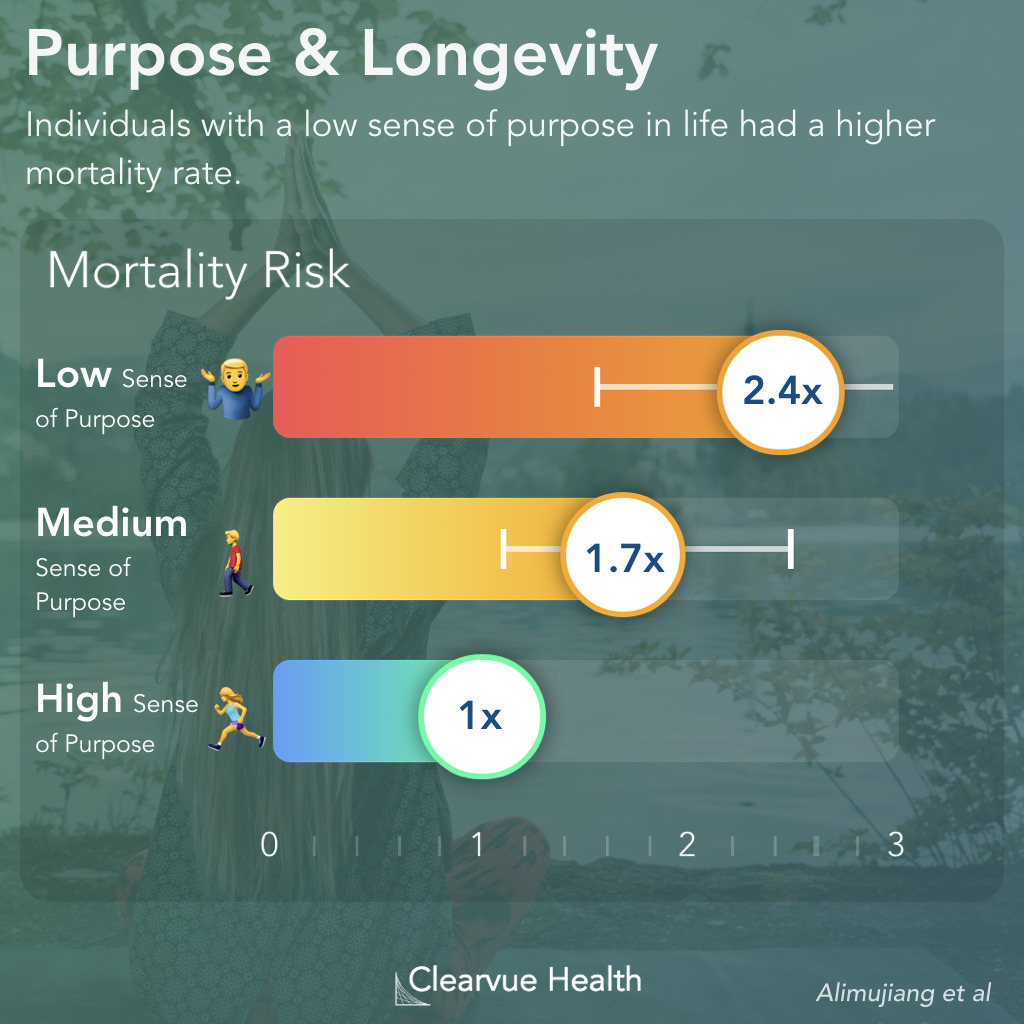
Figure 2: Purpose & Mortality Risk. Individuals with a low sense of purpose in life had a higher mortality rate. After adjusting for age, sex, education, race, marital status, functional status, smoking, exercise, alcohol, BMI, depression, anxiety, and other factors, researchers found that those with low or no sense of purpose had 2.43x the risk of dying compared to those with a very high sense of purpose. Those with a medium sense of purpose had a 1.7x higher risk of dying.
How do we know whether a sense of purpose is responsible for a longer life? Could it be that those with a sense of purpose simply make healthier choices in life?
When the authors looked at other factors, it turns out that indeed, some of these differences may have been driven by exercise, psychological health, and other correlated factors.
However, even after adjusting for a whole host of factors such as age, sex, education, race, marital status, functional status, smoking, exercise, alcohol, BMI, depression, and anxiety, researchers still found a 2.4x higher risk of death in those with a low sense of purpose compared to those with a high sense of purpose.
Source: Association Between Life Purpose and Mortality Among US Adults Older Than 50 Years
How Purpose Increases Life Expectancy
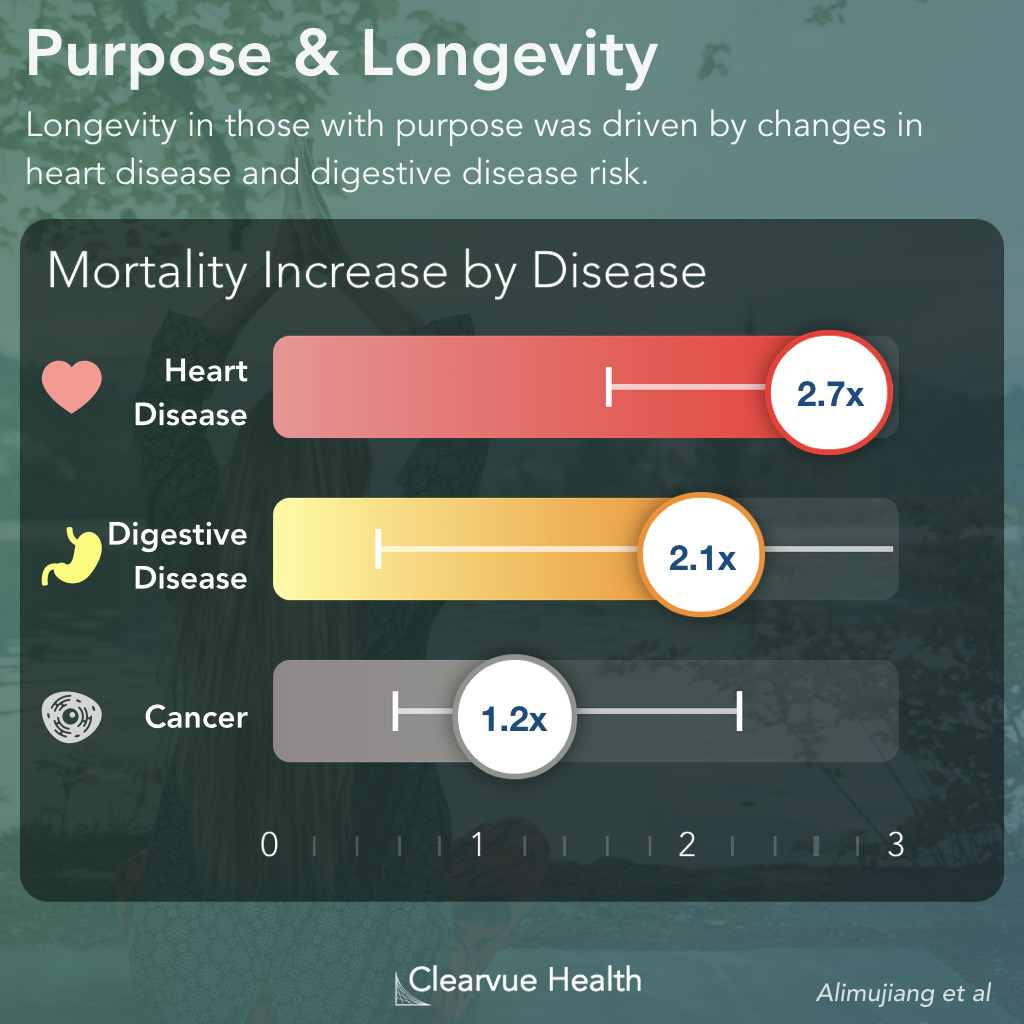
Figure 3: How Purpose Increases Life Expectancy. Longevity in those with purpose was driven by changes in heart disease and digestive disease risk. Those with the lowest sense of purpose had a 2.7x higher mortality rate from heart diseases. They were also 2.1x more likely to die from digestive diseases. They were however not more likely to die from cancer.
When researchers looked at the causes of death among different individuals in the study, they found that purpose led specifically to gains in heart health and digestive health.
The differences in mortality rates were driven by heart disease mortality and digestive disease mortality. Those with a low sense of purpose had 2.4x the risk of heart disease compared to those with a high sense of purpose. They also had 2.1x the risk of digestive disease, which includes stomach and colon cancers.
Cancer, the second leading cause of death in the United States, did not appear to be affected by purpose as rates of cancer did not differ significantly.
This suggests that a sense of purpose may affect different organ systems and diseases differently.
+
Endpoints - Researchers used mortality as an endpoint, which is the best, most objective endpoint.
+
Study Size - The study size was large enough to find significant effects and differences between groups.
+
Variable Adjustment - The study adjusted for multiple variables which increases the likelihood that the effect we see is caused directly by a sense of purpose, though this is impossible to know for sure with this study method.
-
Study Type - Researchers used a prospective cohort study. Prospective cohort studies are good for studying potential links when clinical trials are not feasible. However, they do not confirm causation. We cannot say whether purpose is reducing risk of death or whether it is just correlated with a lower risk.
NPR
More research is needed, but Burrow says his findings suggest that having "a sense of purpose may protect people against stress," with all of its harmful effects, including greater risk of heart disease. And that may explain why people with a sense of purpose live longer.
Mark Manson
Discovering one’s “purpose” in life essentially boils down to finding those one or two things that are bigger than yourself, and bigger than those around you. It’s not about some great achievement, but merely finding a way to spend your limited amount of time well. And to do that you must get off your couch and act, and take the time to think beyond yourself, to think greater than yourself, and paradoxically, to imagine a world without yourself.
Steve Pavlina
If you want to discover your true purpose in life, you must first empty your mind of all the false purposes you’ve been taught (including the idea that you may have no purpose at all).
Clearvue Health is not affiliated with above organizations. The information above is provided to highlight and link to useful further reading.





